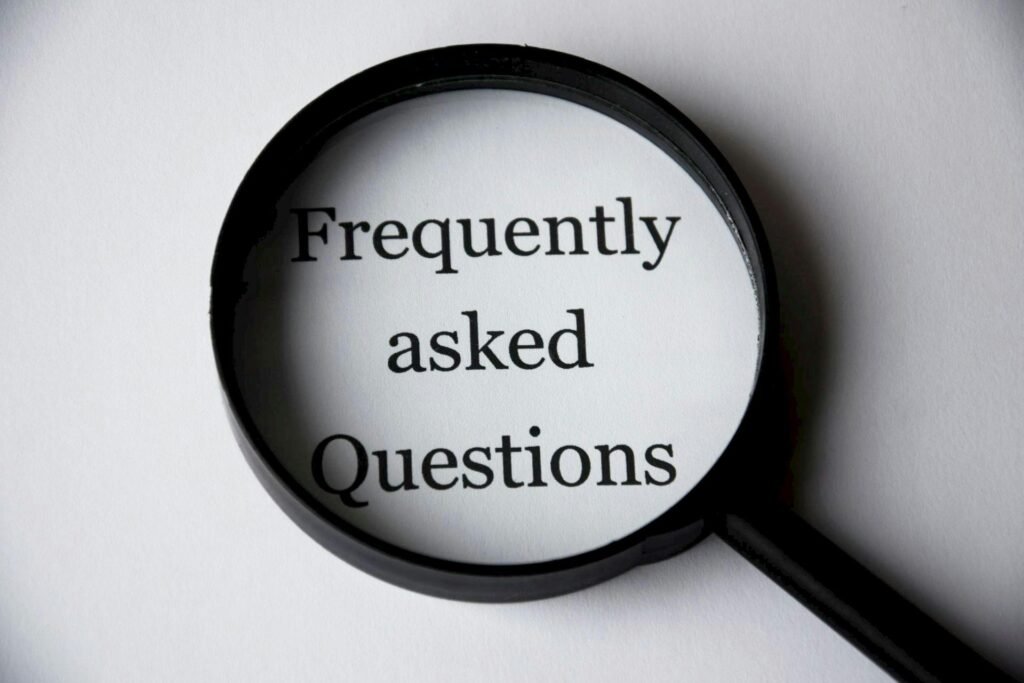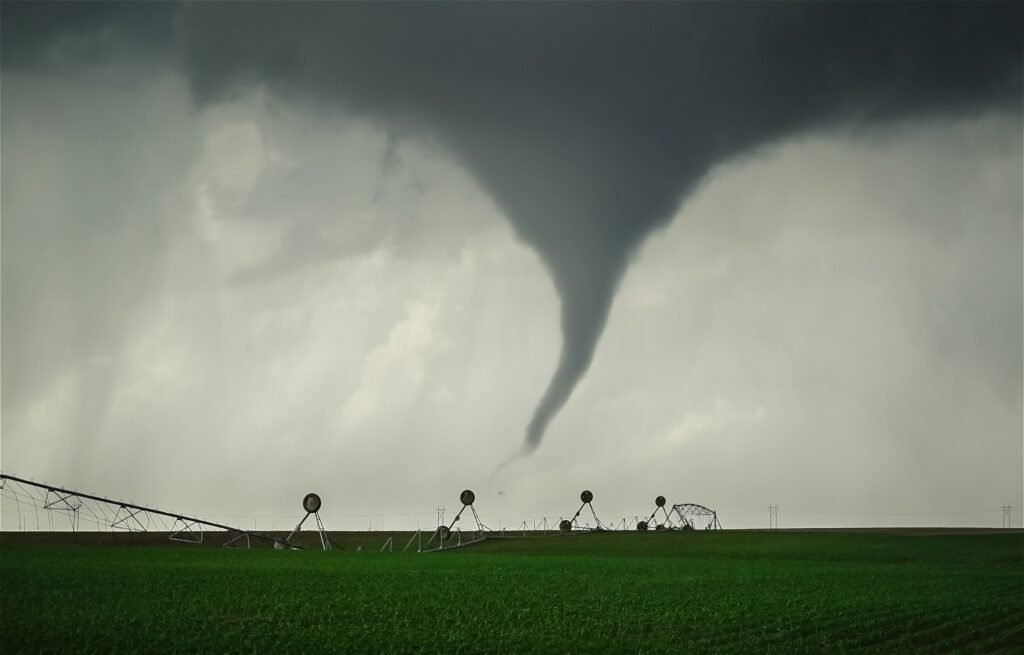Your Small Business Insurance FAQ: Everything You Need to Know

Owning a small business is an exciting adventure but comes with responsibilities. Protecting your business from unexpected financial losses is crucial, and that’s where business insurance comes in. This comprehensive guide addresses frequently asked questions about small business insurance, empowering you to make informed decisions for your company’s well-being. Demystifying Business Insurance What exactly is business insurance? Think of business insurance as a safety net. It protects your company from financial burdens arising from lawsuits, accidents, property damage, and other unforeseen events. How do I know if I need business insurance? Business insurance isn’t always mandatory by law, but it’s highly recommended for most small businesses. Here are some indicators that you might need coverage: You have a physical location: If you operate from a storefront or office, you’ll likely need property insurance to protect your workspace and equipment. You interact with clients or customers: General liability insurance safeguards your business from claims of bodily injury or property damage to third parties on your premises. You offer professional services: If your business involves providing professional advice or services (e.g., accounting, consulting), professional liability insurance (also known as Errors & Omissions or E&O) protects you from claims of negligence or errors in your work. You have employees: Workers’ compensation insurance is typically mandatory for businesses with employees. It provides coverage for medical expenses and lost wages incurred by employees who experience work-related injuries or illnesses. It’s always best to consult with a qualified insurance broker or agent to assess your specific risks and determine the appropriate insurance coverage for your business needs. Our team of professional Brokers is ready to help you in face-to-face discussion or email communication. What types of coverage are typically included in business insurance? There are various types of business insurance, each addressing different risks. Here are some common types: General Liability Insurance: Covers third-party claims for bodily injury, property damage, and personal injury arising from your business activities. Property Insurance: Protects your business property, equipment, and inventory from damage caused by fire, theft, weather events, and other perils. Business Interruption Insurance: Provides financial compensation for lost income and expenses if your business is forced to close temporarily due to a covered event. Workers’ Compensation Insurance: Mandatory in most jurisdictions, covers medical expenses, lost wages, and rehabilitation costs for employees who suffer work-related injuries or illnesses. Cybersecurity Insurance: Protects your business from financial losses resulting from data breaches, cyberattacks, and other cyber threats. Errors & Omissions Insurance (E&O): Protects your business from claims of negligence or errors in your professional services. Remember, this is not an exhaustive list. The specific coverage options will vary depending on your business type and industry. Cost Considerations and Payment Flexibility How much does business insurance typically cost? Several factors contribute to the cost of business insurance, including: Industry: High-risk industries typically pay higher premiums. Location: Businesses operating in areas with higher crime rates or natural disaster risks might have higher premiums. Size of Your Business: Larger businesses with more employees and greater revenue often pay higher premiums. Your Claims History: Businesses with a history of claims may face higher premiums. The Type and Amount of Coverage: Different types of coverage and higher coverage limits will result in higher premiums. Can I pay my business insurance premium in installments? Yes, most insurance companies allow you to pay your business insurance premium in installments, typically monthly or quarterly. This can help with budgeting and cash flow management. Working from Home and Insurance Needs Do I need business insurance if I work from home? Even if you work from home, you might still need business insurance depending on your activities. For instance, if you meet clients virtually or have valuable equipment at home, coverage might be necessary. Discuss your specific situation with an insurance professional to determine if you need business insurance. Customizing Your Coverage Can I customize my business insurance policy? Absolutely! Business insurance policies are often customizable. You can choose the types of coverage you need, select coverage limits, and potentially add endorsements to address specific risks. Office Space and Insurance When do I specifically need office insurance? If you operate from a physical office space, you’ll likely need property insurance to cover Do I need to get insurance for the building itself, or is that the landlord’s responsibility? This depends on your lease agreement. Typically, the landlord will insure the building structure, but you’ll be responsible for insuring your own contents and any modifications you make to the space. What if I share office space with another business? Discuss insurance needs with your co-tenants. You may be able to obtain a joint policy or secure individual coverage depending on the setup. Starting and running a small business is an exciting journey, but it also comes with inherent challenges and risks. Many unforeseen circumstances can disrupt your operations and jeopardize your financial stability. Business insurance acts as a powerful support system, providing a safety net and peace of mind. By understanding your insurance needs and securing the right coverage, you can navigate challenges with greater confidence and focus on what matters most – growing your business and achieving your entrepreneurial goals. This comprehensive guide has addressed some of the most common questions about small business insurance. We encourage you to explore further and consult with our qualified insurance professionals to create a customized insurance plan that empowers your business to thrive.
Staying Covered: Essential Tips for Managing Your Insurance Policies

Your insurance needs can evolve over time. Whether it’s a new car, a growing family, or a career change, neglecting to maintain your insurance policies can leave you financially exposed. Here’s a guide to effectively managing your insurance and ensuring it remains current with your life. Regular Reviews Are Key Schedule Annual Reviews: Just like your car needs a yearly service, your insurance policies benefit from regular checkups. Set a calendar reminder to review your coverage at least once a year. Assess Your Changing Needs: Consider any life changes that might impact your insurance needs. Did you buy a new home? Have children? Started a business? Your coverage may need to be adjusted in response to these events. Understanding What You’re Covered For Read Your Policy Wording: Don’t just skim the documents! Take the time to understand your policy inclusions, exclusions, deductibles (excesses), and limits. If anything is unclear, contact your insurer for clarification. Review Renewal Documents: Don’t automatically accept renewal offers without reviewing them. Renewals may reflect changes in coverage or premium amounts. Making Informed Adjustments to Your Coverage Shop Around for Better Rates: Loyalty can be rewarding, but it doesn’t hurt to compare quotes from other insurers periodically. You might find a more competitive premium for equivalent coverage. Adjust Coverage Levels: As your assets or income change, your insurance needs may adjust as well. Review your coverage limits and deductibles to ensure they adequately reflect your current situation. Consider Add-Ons: Many insurance policies offer optional add-on coverage for specific needs. Research and consider adding riders like accidental injury cover for your home and contents policy. Keeping Your Information Up-to-Date Inform Your Insurer of Changes: Life throws curveballs. Whether it’s a new address, a change in driving habits, or a home renovation, notify your insurer of any significant changes that might impact your risk profile. Review Your Payment Information: Ensure your payment information is up-to-date to avoid lapses in coverage due to missed payments. For added convenience, you may want to consider establishing automatic payments. Leveraging Technology for Easier Management Online Policy Management: Many insurers offer software and online portals where you can access your policy details, file claims, and update information. Mobile Apps: Some insurers offer mobile apps that allow you to easily manage your policies, make payments, and access important documents on the go. Seeking Professional Advice for Complexities Consult an Insurance Broker: A qualified insurance broker can assess your needs, recommend appropriate coverage options, and negotiate competitive rates on your behalf. If you prefer a personal discussion about your insurance needs, we welcome you to visit our office and meet with one of our Brokers. Alternatively, you can also reach out to us via email at info@sydneyinsurancebrokers.com.au. What Types of Insurance Does Your Organization Need? The specific insurance needs of your organization will vary depending on its size, industry, and activities. However, some common types of insurance most businesses should consider include: General Liability Insurance: Protects your business from financial claims arising from bodily injury, property damage, or personal injury to third parties. Commercial Property Insurance: Covers damage to your business property, equipment, and inventory caused by events like fire, theft, or weather. Business Interruption Insurance: Provides financial compensation for lost income and expenses if your business is forced to close temporarily due to a covered event. Cybersecurity Insurance: Protects your business from financial losses resulting from data breaches, cyberattacks, and other cyber threats. Errors and Omissions Insurance (E&O): Also known as professional liability insurance, this protects your business from claims of negligence or errors in your professional services. Workers’ Compensation Insurance: Mandatory in most jurisdictions, this covers medical expenses, lost wages, and rehabilitation costs for employees who suffer work-related injuries or illnesses. It’s crucial to consult with a qualified insurance broker to conduct a thorough risk assessment and determine the most appropriate insurance coverage for your specific business needs. Challenges and Solutions in Insurance Compliance Maintaining insurance compliance can be a complex task for businesses. Let’s examine a few common challenges and explore potential solutions. Challenges: Keeping Up to Date with Changing Regulations: Insurance regulations can change frequently, making it difficult for businesses to stay informed. Solution: Subscribe to industry newsletters or alerts from regulatory bodies to receive updates on regulation changes. Utilize resources provided by insurance carriers or brokers who can explain how these changes might impact your coverage. Managing Multiple Policies: Many businesses require a variety of insurance policies to address different risks. Managing these policies, renewal dates, and requirements can be overwhelming. Solution: Implement a centralized system for storing and organizing insurance documents. Consider insurance management software or utilize spreadsheets to track policy details, expiry dates, and renewal procedures. Understanding Complex Policy Wording: Insurance policies can be laden with legal jargon and complex terms. Deciphering the exact coverage and exclusions can be challenging. Solution: Don’t hesitate to seek clarification from your insurance broker or agent. Request plain language explanations of key terms and conditions within your policy. Maintaining Accurate Records: Insurance companies may request documentation to verify claims or during audits. Having readily available and accurate records is crucial. Solution: Develop a system for maintaining accurate and up-to-date records related to your insurance coverage. This might include certificates of insurance, risk management plans, and claims documentation. Resource Constraints: Small and medium-sized businesses may not have dedicated staff for managing insurance compliance. Solution: Consider outsourcing insurance compliance tasks to a qualified insurance broker. They can handle policy management, and renewal reminders, and ensure you’re adhering to relevant regulations. By understanding these challenges and implementing appropriate solutions, businesses can streamline their insurance compliance processes and ensure they have the necessary coverage in place.
Addressing Climate Risks in the Insurance Industry: A Rising Tide for Australia

The undeniable reality of climate change poses a significant threat to communities and economies worldwide. Australia, with its vast coastlines and diverse ecosystems, is particularly vulnerable to the impacts of a warming planet. These impacts are not just environmental but also deeply financial, with a growing burden on the insurance industry. How Has Climate Change Affected Australians? Increased Frequency and Intensity of Extreme Weather Events: Australia has witnessed a rise in extreme weather events like heatwaves, droughts, floods, and bushfires. The Bureau of Meteorology reports that the average annual temperature has increased by 1.47°C since 1910, with more frequent heatwaves and extreme rainfall events. These events have caused significant property damage, loss of life, and economic disruption. Rising Sea Levels: Sea levels around Australia are increasing due to melting glaciers and the thermal expansion of oceans. This threatens coastal communities with inundation, erosion, and saltwater intrusion, impacting infrastructure, property, and livelihoods. Changes in Rainfall Patterns: Climate change is altering rainfall patterns, leading to more intense downpours and longer dry periods. This disrupts agricultural production, water security, and ecosystems, with flow-on effects for the broader economy. The Effect on Australian Insurance The increasing frequency and intensity of extreme weather events have resulted in: Surge in Insurance Claims: The Insurance Council of Australia (ICA) reports a rise in weather-related insurance claims in recent years. For instance, in 2019-2020, natural disasters resulted in over $39 billion in insured losses. This puts a strain on insurance companies’ solvency and affordability of premiums. Shifting Risk Profiles: As weather patterns change, previously low-risk areas become more susceptible to disasters. This necessitates recalculating risk profiles for properties and businesses, potentially leading to higher premiums in high-risk zones. Availability Challenges: In some high-risk areas, insurance companies may become hesitant to offer coverage or may significantly increase premiums, making it difficult for some Australians to obtain essential insurance. The Risks We Should Expect Looking ahead, climate change is expected to further exacerbate existing risks and introduce new ones: More Frequent and Severe Natural Disasters: The Intergovernmental Panel on Climate Change (IPCC) predicts an increase in the intensity and frequency of extreme weather events due to global warming. This translates to a higher likelihood of costly insurance claims. Infrastructure Damage: Climate change will likely lead to more frequent and severe damage to infrastructure like roads, bridges, and power grids. This can disrupt supply chains, businesses, and communities, causing significant economic losses. Changes in Public Health Risks: Climate change may lead to an increase in heat-related illnesses, vector-borne diseases, and mental health issues. These could impact health insurance costs and strain healthcare systems. Should There Be New Insurance Models? The traditional insurance model based on historical data may not be sufficient to address the evolving risks posed by climate change. Some potential solutions include: Parametric Insurance: This model triggers payouts based on pre-defined parameters associated with a disaster (e.g., wind speed in a cyclone) rather than relying on damage assessments, offering faster financial relief. Resilience-Based Insurance: This model incentivizes risk mitigation measures like strengthening buildings or installing flood defenses. By reducing the risk of damage, it can potentially lower premiums. Public-Private Partnerships: Collaboration between governments and insurance companies can help develop risk-sharing mechanisms and ensure broader community access to affordable insurance in high-risk areas. The insurance industry needs to adapt and innovate to address the challenges posed by climate change. By exploring new models and working collaboratively with governments and communities, the industry can play a crucial role in building resilience and managing climate risks in Australia. Climate Change and Insurance Coverage in Australia While the insurance landscape is adapting to climate change, it’s important to note that standard home and contents insurance may not cover all climate-related events. Here’s a brief overview of some relevant coverages: Flood Insurance: This is a separate policy typically offered as an add-on to home and contents insurance. It protects against damage caused by floodwaters entering your property. Storm Damage: Standard home and contents insurance typically covers damage caused by wind, hail, or rain during storms. However, it’s crucial to check the specific policy wording and exclusions. Bushfire Damage: Similarly, most home and contents insurance policies cover damage caused by bushfires. Again, carefully review your policy wording to understand the extent of coverage. For comprehensive protection against climate-related events, talking to a qualified insurance broker is essential. They can assess your specific risks and recommend the most suitable insurance products to safeguard your property and business. Note: This article is based on publicly available information and should not be considered financial advice. It is always advisable to consult a qualified insurance professional, for personalized advice.
Demystifying Risk: The Cornerstone of Insurance

Understanding risk is fundamental to navigating the world of insurance. As insurance specialists, we deal with the potential for financial loss every day. But what exactly does “risk” mean in the context of insurance? Harvard University defines risk in three ways: Any chance of loss: This is the core concept. An insurance policy protects you against the possibility of a financial setback due to unforeseen events. Uncertainty: The likelihood and severity of a loss are uncertain. Insurance helps manage this uncertainty by providing a financial safety net. The insured or the property/object: In insurance, “risk” can also refer to the person or thing being insured (e.g., your car in a car insurance policy). Beyond the dictionary definition, here’s what “risk” means in insurance: Measurable chance of loss: Insurance companies evaluate the likelihood of a covered event (e.g., car accident, fire) occurring and the potential cost associated with it. Pool of insured risks: By spreading the risk across a large pool of policyholders, insurance companies can manage the financial burden of individual losses. Basis for premiums: The perceived risk of an event (e.g., your driving history for car insurance) affects the cost of your insurance premium. The Many Forms of Risk Insurance policies address a wide range of risks, categorized broadly as: Property risks: Loss or damage to your car, home, or other belongings due to events like fire, theft, or weather. Liability risks: Financial responsibility for injuries or damage you cause to others (e.g., car accident, public liability). Financial risks: Loss of income due to illness, disability, or death. Income protection and life insurance address these risks. Risk terms in insurance that you should know By understanding risk and its various forms, you can make informed decisions when choosing insurance coverage. An insurance specialist can help you assess your risk profile and find the right policy to protect yourself financially in the face of the unexpected. Basic Risk These are common, predictable events with a high probability of occurring, like windscreen damage or minor medical expenses. Basic risks are often factored into general insurance premiums. Standard Risk These are events considered insurable, with a measurable probability of occurring. Examples include car accidents, home fires, and medical emergencies. Standard risks form the basis of most insurance policies, with premiums reflecting the assessed risk profile. Catastrophic Risks These are low-probability, high-severity events like major natural disasters. Some government intervention or specialized insurance markets might be needed to manage these risks. Not all risks can be insured. Here’s why Unpredictable events: Events with an extremely low probability or those impossible to predict (e.g., alien invasion) generally can’t be insured. Moral hazard: If insuring a risk encourages risky behavior (e.g., insuring a car with a history of reckless driving), the insurance becomes unviable. Basis risk: If the cost of insuring a risk becomes too high due to a limited pool of insureds, the insurance becomes impractical. Choosing the Right Risk Insurance Policy: Key Factors Identify your risk profile: Consider your lifestyle, assets, and potential vulnerabilities to determine the risks you need to insure against. Compare policies and coverage: Research different insurance providers and compare their offerings to find a policy that meets your specific needs and budget. Understand exclusions: Be aware of what events or situations are not covered under your policy. Excess (deductible): The excess is the amount you pay upfront before your insurance coverage kicks in. Choosing a higher excess can lower your premium but requires you to shoulder a larger portion of the cost in case of a claim. What is Risk Analysis in Insurance? Risk analysis is the cornerstone of insurance underwriting. It’s the process by which insurance companies assess the probability and severity of potential losses associated with insuring an individual or item. This analysis is crucial for determining: Insurability: Whether a particular risk is suitable for insurance coverage. Premium pricing: The cost of your insurance policy is directly linked to the assessed risk profile. A thorough risk analysis ensures premiums are fair and reflect the likelihood of a claim. Policy terms and conditions: Risk analysis can influence the specific terms and conditions of your policy, such as exclusions or excess amounts. Risk analysis in insurance typically involves: Data collection: This includes information about the person or property being insured, their history (e.g., driving record, claims history), and any relevant statistics. Statistical analysis: Insurance companies leverage historical data and actuarial science to estimate the likelihood of insured events. Risk mitigation strategies: In some cases, insurers might recommend risk mitigation strategies (e.g., home security systems) to improve your risk profile and potentially lower In conclusion, risk is the foundation of insurance. By understanding how insurance companies analyze and manage risk, you can make informed decisions about the type and amount of coverage you need. Don’t hesitate to seek professional advice to ensure you have the right insurance plan in place to protect yourself financially. Remember: This article provides general information only. Consult a qualified insurance broker to obtain advice tailored to your specific circumstances.
Peace of Mind on the Road: Understanding CTP Insurance in Australia

Hitting the road in Australia requires more than just a license and registration. It’s mandatory to have Compulsory Third Party (CTP) insurance, also known as a Green Slip in New South Wales. This essential insurance acts as a safety net, ensuring those injured in a car accident receive financial support, regardless of who caused the accident. What is CTP Insurance? CTP insurance provides compensation for medical expenses, lost income, and other benefits to people injured in a motor vehicle accident. This includes: Individuals operating or riding in other vehicles involved in the accident Passengers in your vehicle Pedestrians, cyclists, and motorcyclists injured by your vehicle Think of CTP insurance as a legal requirement that protects everyone on the road, ensuring those injured in an accident have access to financial assistance. What’s Covered Under CTP Insurance? CTP insurance typically covers a range of expenses for accident victims, including: Medical and treatment costs: This covers hospital stays, surgery, rehabilitation, medication, and other treatments related to your injuries. Loss of income: If you’re unable to work due to your injuries, CTP insurance may compensate for lost income. Permanent disability benefits: In case of permanent disabilities, CTP insurance may provide ongoing financial support. Funeral expenses: In the tragic event of a fatality, CTP insurance may contribute towards funeral costs. What is Not Covered? While CTP insurance is vital, it’s important to understand its limitations: Damage to vehicles: CTP insurance doesn’t cover repairs to your vehicle or damage to other vehicles involved in the accident. Personal injury to yourself (the at-fault driver): If you’re the driver who caused the accident and sustained injuries, CTP insurance wouldn’t cover your medical expenses or lost income. Property damage: CTP insurance doesn’t cover damage to property, such as fences, buildings, or other objects impacted by the accident. Theft: CTP insurance doesn’t cover the theft of your vehicle. How Does CTP Work in Australia State by State? CTP schemes are administered by each state and territory in Australia. Here’s a brief overview: New South Wales (NSW): CTP insurance is known as a Green Slip and is overseen by the State Insurance Regulatory Authority (SIRA). Victoria: The Transport Accident Commission (TAC) manages CTP insurance in Victoria. Queensland: CTP insurance is administered by the Motor Accident Insurance Commission (MAIC) in Queensland. South Australia, Western Australia, Tasmania, Northern Territory, and Australian Capital Territory (ACT): Each of these jurisdictions has its own CTP scheme and regulatory body. It’s important to check with the specific CTP authority in your state or territory for detailed information on coverage, costs, and claims processes. What Documents You May Need to Buy CTP Insurance Obtaining CTP insurance (Green Slip in NSW) is a relatively straightforward process. Here are some documents you generally need to have on hand: Vehicle Registration: Your vehicle registration document is essential for CTP insurers to identify the vehicle you’re insuring. Driver’s License: A copy of your driver’s license is required to verify your identity and driving qualifications. Proof of Ownership (if applicable): If you’re not the registered owner of the vehicle (e.g., leasing a car), you might need to provide a document proving your permission to insure the vehicle. In some cases, you may also be required to provide: Demerit Point History: Your CTP insurer might request information on your demerit points, which can affect your premium costs. Previous CTP Insurance Details (if applicable): If you’re switching CTP providers, having details from your previous policy can expedite the process. CTP Claims Process Explained: What to Do After an Accident If you’re unfortunately involved in a car accident and need to make a CTP claim, here’s a general overview of the process: Seek Medical Attention: Your health and safety are the top priority. Ensure you receive any necessary medical treatment and obtain documentation of your injuries. Report the Accident: Contact the police to report the accident and obtain a police report. This report will be crucial for your CTP claim. Lodge Your CTP Claim: Contact your CTP insurer or the relevant CTP authority in your state to lodge your claim. They will give you a claim and you will be guided through the process by them. Gather Evidence: Collect any evidence that supports your claim, such as witness statements, photos of the accident scene, and damage to vehicles. Keep Records: Maintain copies of all medical bills, receipts, and communication with your CTP insurer. Frequently Asked Questions (FAQs): Is it illegal to not have car insurance in Australia? Yes, driving an unregistered vehicle without CTP insurance is illegal in all Australian states and territories. Significant penalties and fines apply for driving without a valid CTP Green Slip. Which vehicles need CTP insurance? All registered vehicles in Australia, including cars, motorcycles, trucks, buses, and trailers, require CTP insurance. Does CTP cover the cost of damaged vehicles or property? No, CTP insurance doesn’t cover repairs to your vehicle or damage to other vehicles or property involved in the accident. For this type of coverage, consider comprehensive car insurance. Does CTP cover theft? No, CTP insurance focuses on compensating those injured in an accident. Theft of your vehicle wouldn’t be covered under CTP insurance. Does CTP insurance transfer with registration? Yes, CTP insurance is linked to the vehicle, not the owner. When you sell your car, the CTP insurance automatically transfers to the new owner. The responsibility to maintain CTP coverage falls on the vehicle’s registered owner. Please note: This article is a general guide and doesn’t constitute specific financial advice. For detailed information on CTP insurance costs, coverage options, and claims processes in your state, we recommend contacting our experienced consultants at Sydney Insurance Brokers. We can help you understand your CTP requirements and ensure you have the right
Do You Need Electronic Equipment Breakdown Insurance? Learn How it Protects Your Tech

Electronic equipment is vital for businesses and individuals, from computers and servers to medical devices and point-of-sale systems. However, unexpected breakdowns can disrupt workflows, result in costly repairs, and lead to lost data. This is where Electronic Equipment Breakdown Insurance (EEBI) steps in, offering a safety net for your valuable technological investments. Who Needs Electronic Equipment Breakdown Insurance? EEBI isn’t just for large corporations with extensive server rooms. Here’s who can benefit from this type of coverage: Businesses of All Sizes: Any business that relies on electronic equipment for daily operations can benefit from EEBI. This includes everything from restaurants using point-of-sale systems to architects working with specialized design software. Home Offices and Freelancers: For individuals who depend on their computers and other electronic devices for their livelihood, EEBI can provide financial protection against costly repairs or replacements. Medical Professionals: Medical devices used in clinics and hospitals are often expensive and critical for patient care. EEBI can ensure these devices are covered in case of unexpected breakdowns. Essentially, anyone who relies heavily on electronic equipment and could suffer significant financial losses due to a breakdown can benefit from EEBI. The Difference Between Machinery & Equipment Breakdown Insurance and Commercial Property Insurance While the terms might sound similar, there are key distinctions between Machinery & Equipment Breakdown Insurance (MEBI) and Commercial Property Insurance: Coverage Focus: MEBI, which encompasses EEBI, focuses specifically on the breakdown of electronic and mechanical equipment due to internal malfunctions, manufacturing defects, or operational errors. Commercial Property Insurance: This type of insurance covers physical damage to your property itself, including buildings, furniture, and inventory, caused by events like fire, theft, or vandalism. It typically doesn’t cover breakdowns of equipment within the property. Think of MEBI as an add-on to your Commercial Property Insurance, providing a safety net for the functionality of your equipment beyond basic property damage. Key Coverages of Equipment Breakdown Insurance EEBI policies provide financial protection against a range of unforeseen events that can damage or destroy your electronic equipment. Here are some of the common coverages included: Mechanical and Electrical Breakdown: This covers malfunctions due to internal component failures, including power surges, overheating, and short circuits. Manufacturing Defects: EEBI can cover repairs or replacements necessitated by inherent flaws in the equipment’s design or manufacturing process. Liquid Damage: Spills, accidental drops in water, or malfunction due to faulty cooling systems can be covered under EEBI depending on the specific policy wording. Operational Errors: Some policies may extend coverage to accidental damage caused by human error during operation, such as dropping a laptop. Additionally, some EEBI policies may offer: Data Recovery: Coverage for the costs associated with recovering lost data due to a hardware malfunction. Increased Cost of Working: Compensation for expenses incurred while your equipment is being repaired, such as renting replacements. Extended Warranty: EEBI can sometimes act as an extension of your manufacturer’s warranty, providing coverage beyond the initial warranty period. It’s important to note that specific coverage details can vary between policies. Carefully review the terms and conditions offered by different insurance providers before making a decision. What is Commonly Not Covered in Electronic Equipment Breakdown Insurance While EEBI offers valuable protection, it’s essential to understand its limitations. Here are some common exclusions: Normal Wear and Tear: Gradual deterioration of equipment due to everyday use is typically not covered. Cosmetic Damage: EEBI focuses on functional breakdowns, not scratches or dents on the equipment’s exterior. Software Issues: EEBI doesn’t cover software malfunctions, data loss due to software errors, or cyberattacks. Intentional Damage: Deliberate damage to the equipment or theft is not covered under EEBI policies. Acts of terrorism and War: Events like terrorism, or war are typically not covered under EEBI policies. Radioactive and Nuclear Energy Risks: Damage caused by radioactive or nuclear materials is usually excluded. Third-Party Responsibilities: The responsibilities of contractors, suppliers, or repairers for faulty equipment or installations wouldn’t be covered under EEBI. These fall under separate insurance policies. When considering EEBI, it’s crucial to assess your specific needs and the value of your equipment. If you rely heavily on mission-critical electronic devices, EEBI can provide peace of mind and safeguard your business from financial losses associated with unexpected breakdowns. *Disclaimer: This article provides general information only and is not a substitute for professional insurance advice. Specific coverages and exclusions of electronic equipment breakdown insurance will vary depending on the insurance policy and the insurer. Please contact us for advice tailored to your specific circumstances.
Unlocking Flexibility: Insurance Solutions for Remote Work

The way we work is changing. Gone are the days of mandatory office commutes; remote work, or telecommuting, is becoming increasingly popular in Australia. But with this shift in work environment comes a new set of considerations for both employers and employees. This article explores the world of remote work, the risks involved, and how insurance can help manage those risks. What Does It Mean to Work Remotely? Remote work, also known as telecommuting, allows employees to perform their duties from a location outside of a traditional office setting. This could be from their home office, a co-working space, or even a cafe. As long as they have a reliable internet connection and the necessary tools, remote workers can be productive and contribute to the team. Advantages and Disadvantages of Telecommuting There are many advantages to remote work, for both employers and employees. These include: Increased Flexibility: Remote work offers employees a better work-life balance and the ability to manage personal commitments more effectively. Reduced Costs: Employers can save on office space and utilities, while employees save on commuting expenses. Improved Productivity: Studies have shown that remote workers can be just as productive, if not more so, than their office-based counterparts. However, one must also take into account certain disadvantages: Social Isolation: Remote workers can miss out on the social interaction and collaboration that comes with working in an office environment. Cybersecurity Risks: Businesses need to take steps to ensure that remote workers are accessing data securely. Work-Life Balance Challenges: It can be difficult for some employees to switch off from work when they are working from home. Risks in Telecommuting While remote work offers many benefits, it also presents some unique risks. These include: Ergonomic Injuries: Employees who don’t have a properly set-up home office can be at risk of developing repetitive strain injuries. Cybersecurity Threats: Remote workers may be more vulnerable to cyberattacks, such as phishing scams and malware. Data Breaches: Employees working with sensitive data from home could be at risk of accidental or intentional data breaches. Mental Health Issues: Social isolation and a lack of clear boundaries between work and personal life can lead to mental health problems for some remote workers. How to Reduce the Risks of Remote Work There are a number of steps that employers can take to reduce the risks associated with remote work. These include: Providing ergonomic training and advice: Help employees create a safe and comfortable home office environment. Implementing strong cybersecurity protocols: Ensure that remote workers have secure access to company data and systems. Promoting a healthy work-life balance: Encourage employees to take breaks and disconnect from work outside of working hours. Offering mental health resources: Provide access to support services for employees who may be struggling with social isolation or other challenges. What Insurance is Possible and Necessary for Remote Workers in Australia? Workers’ compensation insurance is generally still applicable to remote workers in Australia, as long as the injury is sustained while performing work duties. However, it’s important to check the specific policy wording to ensure coverage applies to home office environments. Here are some additional insurance considerations for remote work: Business interruption insurance: This can help cover lost income if a remote worker is unable to work due to illness or injury. Cybersecurity insurance: This can help cover the costs associated with a data breach or cyberattack. Public liability insurance: This can protect against claims of third-party injury or property damage arising from remote work activities. Businesses need to review their existing insurance policies and consider any additional coverage they may need to support a remote workforce. Frequently Asked Questions: 1. What if a worker is injured while working at home? Workers’ compensation insurance typically covers injuries sustained while performing work duties, regardless of location. However, it’s important to check the specific policy wording to confirm coverage for home office environments. 2. Is workers’ compensation insurance necessary for workers who work at home? Yes, workers’ compensation insurance is generally still mandatory for remote workers in Australia. 3. What if workers work from home in a different area of Australia? Workers’ compensation laws apply in the state or territory where the employee is working. It’s important to be aware of any potential jurisdictional differences in coverage. By understanding the risks associated with remote work and taking steps to mitigate them, businesses can ensure a safe and productive work environment for their employees. Consulting with an insurance broker can help businesses develop a comprehensive insurance strategy to protect their remote workforce.
Top 4 Insurance Software That You Should Know

Whether you’re an insurance broker looking to enhance your daily operations or an individual seeking the best insurance coverage, insurance software options can make a significant difference in managing policies, claims, and client interactions. We will explore each software’s key features, benefits, and what sets them apart. By the end of this post, you’ll have a comprehensive understanding of the leading software solutions in the insurance industry, empowering you to make informed decisions that align with your specific needs and goals. So, let’s dive into the world of insurance software and discover the top 4 solutions that can revolutionize how you handle insurance-related tasks and ensure a seamless experience for insurance professionals and policyholders. The Transformative Benefits of Insurance Broker Software Using insurance broker software brings a range of benefits that significantly impact the effectiveness and efficiency of insurance professionals. Firstly, it enhances agent productivity by providing them with intuitive tools and automated processes, allowing them to focus on building relationships and providing personalized service to clients. Secondly, it improves customer engagement through features like self-service portals, online quoting, and real-time communication, ensuring a seamless and interactive experience for policyholders. Moreover, the software streamlines workflows, leading to increased efficiency and growth by automating time-consuming tasks, such as policy management, document generation, and claims processing. Additionally, it facilitates better team collaboration by centralizing data, communication, and tasks, enabling seamless coordination among team members. The software also enables effective management of insurance policies through intuitive dashboards and reporting tools, ensuring accurate policy tracking and renewal management. Finally, insurance broker software offers customized functionalities tailored to specific business needs, allowing brokers to adapt the software to their unique workflows and requirements. 1. Accenture Life Insurance and Annuity Platform Accenture Life Insurance & Annuity Platform (ALIP) is a software solution designed for life insurance and annuity businesses. It helps these businesses manage their products, customers, and policies more efficiently. Here’s a breakdown of its pros and cons. ALIP Pros Cloud-based: ALIP is built for the cloud, which means it’s scalable and accessible from anywhere. This can be a major advantage for businesses that want to avoid the cost and complexity of managing their own IT infrastructure. Flexible and configurable: ALIP can be customized to meet the specific needs of each business. This grants businesses the ability to select the features and functionality that hold the highest significance for their needs. Improved efficiency: ALIP can automate many tasks that are currently performed manually by insurance companies. By doing so, businesses can effectively save both time and money. Faster product development: ALIP can help businesses to develop and launch new products more quickly. This advantage can enhance businesses’ competitiveness in the marketplace. Improved customer service: By providing a unified view of customers and their policies, this software empowers businesses to enhance their customer service capabilities. ALIP Cons Cost: ALIP is a comprehensive solution, and it can be expensive to implement and maintain. Complexity: ALIP is a complex system, and it can be challenging to learn and use. Vendor lock-in: Once a business has implemented ALIP, it can be difficult to switch to another system. Overall, ALIP is a powerful platform that can help life insurance and annuity businesses improve their efficiency, develop new products faster, and provide better customer service. However, it is important to be aware of the costs and complexity involved before implementing ALIP. 2. Guidewire InsuranceSuite Guidewire InsuranceSuite is a comprehensive software suite designed specifically for the insurance industry. It acts as a central hub for managing all aspects of an insurance business, aiming to be a single source of truth for customer, policy, and financial data. Guidewire InsuranceSuite Pros Streamlined workflows: Guidewire boasts features that automate many tasks across various insurance operations, leading to smoother claims processing, policy management, and billing. Data centralization: The suite offers a unified platform to store and manage all your insurance data, making it easier to access and analyze customer information, policy details, and financial transactions. Customization: Guidewire allows for customization to fit your specific business needs. You can tailor functionalities to your insurance lines and internal processes. Improved decision-making: By centralizing data and offering reporting tools, Guidewire empowers insurers to make data-driven decisions based on insights gleaned from customer behavior and claims history. Scalability and cloud options: Guidewire can adapt to your business size and offers cloud-based deployment for greater accessibility and potentially lower IT infrastructure costs. Guidewire InsuranceSuite Cons Cost: Guidewire can be a significant investment, with implementation and ongoing licensing fees. Complexity: The suite’s comprehensiveness can make it complex to learn and navigate, requiring user training. Limited self-service features: While Guidewire offers customer portals, some reviewers note that these functionalities might be less mature compared to other aspects of the suite. Versioning challenges: Some users report encountering difficulties with how Guidewire handles system versioning in the background. Overall, Guidewire InsuranceSuite is a powerful tool for insurance companies seeking to streamline operations, centralize data, and gain better business insights. However, its cost and complexity require careful consideration before implementation. 3. Vertafore Agency Platform Vertafore Agency Platform, often referred to as Vertafore QQ (formerly known as AMS360), is a cloud-based insurance agency management system designed to streamline various tasks for insurance agencies of all sizes. It acts as a central hub for managing customers, policies, finances, documents, and more. Vertafore Agency Platform Pros Cloud-based: Accessible from anywhere with an internet connection, eliminating the need for complex on-site IT infrastructure. Comprehensiveness: Offers a wide range of features, including customer relationship management (CRM), policy management, billing, accounting, document management, and reporting. Efficiency: Automates many tasks associated with insurance agency operations, saving time and reducing errors. Quoting capabilities: Integrates with tools for quick and accurate generation of insurance quotes. Compliance support: This can help agencies stay compliant with relevant insurance regulations. Vertafore Agency Platform Cons Learning curve: The platform can be complex for new users to learn and navigate, requiring training. Cost: Pricing varies based on features and agency size, but it can be a significant investment. Limited
Must-Know Insurance Essentials for Cleaners: Protecting Your Business

Running a cleaning business can be rewarding, but it comes with its own set of risks. Whether you are an independent cleaner or operate a larger cleaning company, having the right insurance coverage is crucial to protect yourself and your business from potential liabilities. In this article, we will explore why cleaners need insurance and the essential types of coverage they should consider, specifically within the Australian context. Why Cleaners Need Insurance Before you go to different types of insurance, you must be sure that you need insurance. The right insurance can protect you from various risks and give you more peace of mind. The following are some situations that may arise for your business and where insurance will help. Protection Against Liability Claims Cleaners often work in various environments, from private homes to commercial spaces. This exposes them to numerous risks, such as damaging a client’s property or causing an injury. Liability claims can be financially devastating, but insurance can cover legal fees and compensation costs, ensuring your business remains solvent. Safeguarding Your Equipment Cleaning equipment and supplies represent a significant investment. Insurance can protect these assets against theft, damage, or loss. Without insurance, replacing stolen or damaged equipment could be a considerable financial burden. Ensuring Business Continuity Unexpected events, such as natural disasters or accidents, can interrupt your business operations. Insurance can help cover lost income and additional expenses, ensuring that your business can continue to operate even in the face of adversity. Meeting Contractual Requirements Many clients, especially commercial ones, require proof of insurance before hiring a cleaning service. Having insurance not only makes your business more attractive to potential clients but also demonstrates professionalism and a commitment to quality service. Essential Insurance Covers for Cleaners When running a cleaning business, it is crucial to ensure that you have the appropriate insurance coverage to protect your business, your employees, and your clients. Here are some essential insurance covers for cleaners: Public Liability Insurance Importance for Cleaners: Given the nature of cleaning work, where slips, trips, and accidental damages can easily occur, public liability insurance is essential. It covers legal costs, medical expenses, and compensation, providing peace of mind and financial protection. Coverage Details: Public liability insurance covers you if a third party is injured or their property is damaged due to your business activities. This is the most crucial insurance for cleaners, as it protects against claims for accidents that occur while on the job. Property Insurance Coverage for Equipment and Supplies: Property insurance covers the cleaning equipment and supplies, vital to your business. This includes protection against theft, fire, and other types of damage. Real-World Applications: Imagine a scenario where your storage facility catches fire, destroying all your cleaning equipment. Property insurance would cover replacing the lost items, allowing you to resume operations without significant financial strain. Workers’ Compensation Insurance Legal Requirements in Australia: In Australia, workers’ compensation insurance is mandatory for businesses with employees. It pays for medical bills and lost wages for employees hurt while working. Benefits for Employers and Employees: For employees, this insurance ensures they receive necessary medical treatment and financial support during recovery. For employers, it protects against lawsuits from injured workers, as they generally relinquish the right to sue in exchange for benefits. Commercial Auto Insurance When It’s Needed: If your cleaning business involves the use of vehicles for transporting equipment and supplies or traveling to client locations, commercial auto insurance is essential. Coverage Specifics: Commercial auto insurance covers liabilities arising from vehicle use, including accidents, theft, and damage. It protects both the vehicle and any third parties involved in an incident. Product Liability Insurance Importance for Cleaners: If you sell cleaning products as part of your business, product liability insurance is necessary. It covers claims related to injuries or damages caused by products you supply. Coverage and Claims Process: This insurance covers legal fees and compensation costs if a customer claims that a product you sold caused harm. It ensures that your business can handle such claims without severe financial impact. Business Interruption Insurance Why It’s Crucial for Cleaners: Unexpected disruptions can lead to significant financial loss. This insurance ensures you can continue to pay rent, salaries, and other expenses even when your business is temporarily unable to operate. What It Covers: Business interruption insurance compensates for lost income and operating expenses if a covered event, such as a fire or natural disaster disrupts your business operations. Crime Insurance Protection Against Theft and Fraud: Crime insurance covers losses from theft, fraud, and other criminal acts committed by employees or outsiders. This is particularly important if your business handles significant amounts of cash or has valuable equipment. Policy Options: Policies can be tailored to cover specific risks, such as employee dishonesty, forgery, or burglary. This insurance provides a safety net against financial losses due to criminal activities. Choosing the Right Insurance Assessing Your Business Needs: Start by evaluating the specific risks your business faces. Consider factors like the type of cleaning services you offer, the environments in which you work, the value of your equipment, and whether you employ staff or use vehicles for business purposes. Comparing Insurance Providers: Research different insurance companies and compare their offerings. Look for providers with experience in insuring cleaning businesses and check their reputation for handling claims efficiently. Reading the Fine Print: Carefully review policy terms and conditions. Ensure you understand what is covered, exclusions, and any coverage limits. Don’t hesitate to ask your insurance agent for clarification on any confusing terms. At Sydney Insurance Brokers, we help you to consider all the available risks and choose the best options according to your business conditions, your budget, and your needs. Conclusion Insurance is a critical component of running a successful cleaning business. It protects against a multitude of risks, ensuring that your business can survive and thrive even in the face of unexpected events. Understanding the various types of insurance available and choosing the right coverage for your needs can safeguard your business’s
Insurance for Retailers in Australia

Running a retail business in Australia comes with its unique set of challenges and risks. From property damage to liability issues, retailers face numerous potential pitfalls. Ensuring adequate insurance coverage is crucial for safeguarding your business. In this article, we will explore the various types of insurance available for Australian retailers and how they can safeguard your enterprise from unforeseen events. Understanding Retail Insurance Retail insurance is a specialized type of business insurance designed to cover the unique risks associated with retail operations. It encompasses a range of policies that protect against different types of losses, ensuring that your business can withstand various challenges. Retail insurance isn’t a one-size-fits-all solution. It includes multiple coverage options, each tailored to address specific risks. Common types of retail insurance include general liability, property insurance, business interruption insurance, workers’ compensation, commercial auto insurance, product liability insurance, cyber liability insurance, and crime insurance. General Liability Insurance Coverage Details General liability insurance protects retailers against claims of bodily injury, property damage, and personal injury. This type of insurance is crucial as it covers legal fees, settlements, and medical costs if someone is injured on your premises. Importance for Retailers For retailers, general liability insurance is indispensable. It safeguards against common incidents such as slip-and-fall accidents, which can result in costly lawsuits. Without this coverage, a single incident could potentially bankrupt a small business. Real-Life Examples Consider a scenario where a customer slips on a wet floor in your store and breaks their arm. In the event of a lawsuit, general liability insurance would provide coverage for both medical expenses and associated legal fees. This coverage provides peace of mind, knowing that your business is protected from such liabilities. Property Insurance Coverage for Physical Assets Property insurance protects your business’s physical assets, including the building (if owned), inventory, fixtures, and equipment. This coverage is vital in case of events like fire, theft, or natural disasters. Types of Property Insurance There are two main types of property insurance: all-risk policies and named-peril policies. All-risk policies cover a wide range of incidents except those specifically excluded, while named-peril policies cover only the risks listed in the policy. Case Studies Imagine a fire breaking out in your store, damaging inventory and equipment. Property insurance would cover the cost of replacing the damaged items and repairing the store, enabling you to get back to business as soon as possible. Business Interruption Insurance What It Covers Business interruption insurance compensates for lost income and operating expenses if your business is forced to shut down temporarily due to a covered event, such as a natural disaster or fire. Why It’s Crucial for Retailers Retailers rely heavily on consistent revenue streams. A temporary closure without this insurance could result in significant financial loss. Business interruption insurance ensures that you can continue to pay expenses like rent and employee salaries even when your store is not operational. How to Calculate Coverage Needs To determine the right amount of coverage, calculate your business’s daily revenue and expenses. Consider how long it might take to resume operations after a disaster. This assessment helps ensure you have adequate coverage to survive an extended closure. Workers’ Compensation Insurance Legal Requirements Most states in Australia require businesses to carry workers’ compensation insurance, which covers medical expenses and lost wages for employees injured on the job. Benefits for Employees and Employers For employees, this insurance ensures they receive necessary medical treatment and financial support during recovery. For employers, it protects against lawsuits from injured employees, as workers typically relinquish the right to sue in exchange for benefits. Case Scenarios If an employee is injured while unloading stock, workers’ compensation insurance would cover their medical bills and a portion of their lost wages. This support helps maintain employee morale and loyalty. Commercial Auto Insurance When Retailers Need It Retailers who use vehicles for business purposes, such as delivery services or transporting goods, need commercial auto insurance. This coverage protects against accidents, theft, and damage involving business vehicles. Coverage Specifics Commercial auto insurance covers liability for bodily injury and property damage, as well as collision and comprehensive coverage for your vehicles. It also includes protection against uninsured motorists. Industry Examples A bakery that delivers cakes using company vans would need commercial auto insurance. If one of the vans is involved in an accident, this insurance would cover repair costs and any liabilities arising from the incident. Product Liability Insurance Importance for Product-Selling Retailers Retailers selling products face the risk of claims arising from product defects that cause injury or damage. Product liability insurance covers legal costs and damages related to these claims. Coverage and Claims Process This insurance covers various claims, including manufacturing defects, design defects, and inadequate warnings or instructions. If a customer sues claiming that a product caused harm, the insurance would handle the legal defense and any settlements. Historical Claims Examples A classic example is the case of a customer suing a toy store because a toy was found to contain hazardous materials. Product liability insurance would cover the store’s legal costs and any compensation awarded to the customer. Cyber Liability Insurance Rising Cyber Threats As retailers increasingly rely on digital systems and online sales, cyber threats become a significant concern. Cyber liability insurance protects against data breaches, hacking, and other cyber incidents. Coverage Options Cyber liability insurance typically covers costs related to data breaches, including notification expenses, legal fees, and penalties. It also offers protection against cyber extortion and data restoration costs Prevention Tips To mitigate cyber risks, retailers should implement robust security measures, such as encryption, firewalls, and regular security audits. Equally important is providing comprehensive employee training on cybersecurity best practices. Crime Insurance Protection Against Theft and Fraud Crime insurance covers losses from theft, fraud, and other criminal acts committed by employees or outsiders. This coverage is vital for retailers dealing with cash transactions and valuable inventory. Real-World Applications For instance, if an employee embezzles funds or a shoplifter steals merchandise, crime insurance would cover the
